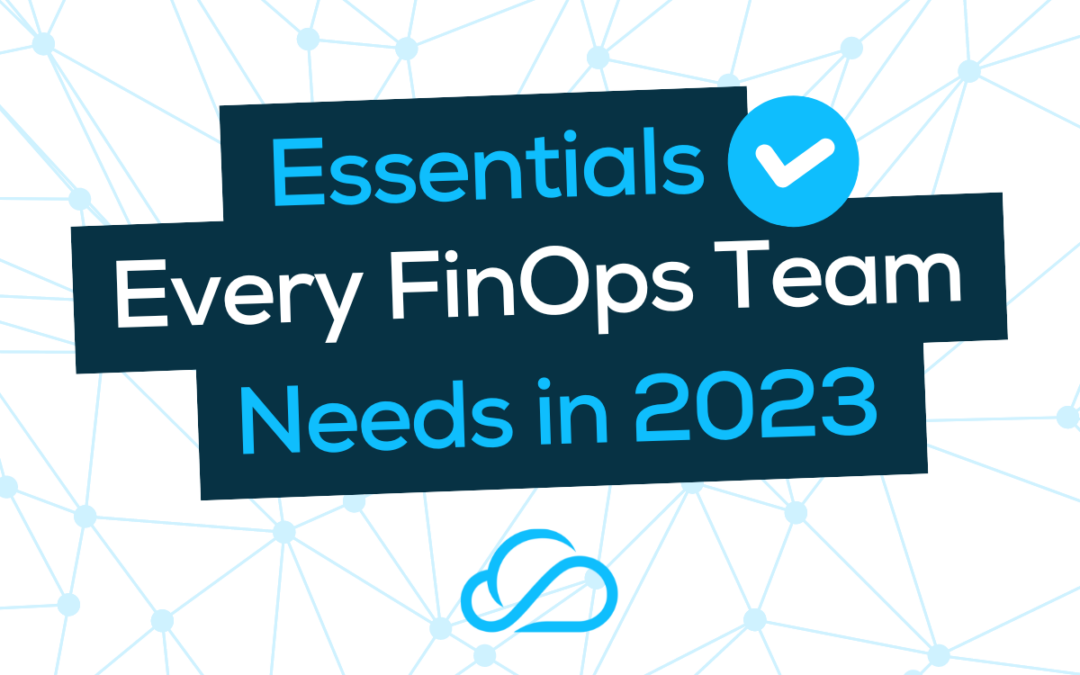The type of cloud infrastructure that you put in place is not a one-and-done choice. Over the years, your cloud usage will inevitably change and grow, and your FinOps team needs to be prepared and adaptable. Every change, such as additional clients or the release of a new service or product, will impact your spending and usage. When changes like this occur, you can not assume that the environment you implemented is still at its most effective.
Proactiveness and adaptability are essential parts of your FinOps team, and in 2023, your team should be well-equipped with the tools and resources needed to provide your company with the best cloud environment possible.
1. Company Wide Representation
Depending on the size of your company, your FinOps team might not be made up of all full-time FinOps specialists. However, no matter how many specialists you have on your FinOps team, it is crucial to have people from various departments represented in the team. They don’t have to be full-time but simply dedicate a small portion of time to certain FinOps tasks. Representatives from finance, engineering, and service/product departments can bring a slew of perspectives that you would not have otherwise. These perspectives can be beneficial when dedicating costs to certain departments and collaborating more effectively.
2. A Resource Tagging Strategy
Tagging has become an essential part of proper cost management and monitoring. Your FinOps team needs the framework to produce consistent tagging on cloud resources while creating and leveraging tag policies. Finding a program that will automate tagging and provide you with reports and data each month is a great solution. A tag management system can help develop and implement a strategy to ensure you are labeling, tracking, and monitoring your tags and not overspending.
3. Appropriate Metric Goals
You will not be a budget-minded FinOps team without defining and upholding metrics within your business. They can not be grouped with other IT or DevOps metrics as they provide different insights and necessary data. For example, you should have metric goals for idle resources (preferably around 0%), forecasting accuracy (around 90%), automated resource use (about 50% or more), and other metrics that have to do with the success of your cloud environment. These metric goals should revolve around what your business needs to save and grow.
4. Shared Accountability
Simply implementing a FinOps team is not enough. FinOps is not just a service but a culture to bring into your organization. One of the cultural aspects to bring to your company is that of accountability. Just like any other project, if it goes above budget, the people within the project need to be held accountable. In FinOps, departments need to be held accountable for their budgets. Shared accountability ensures that each department understands its responsibilities and how its job will affect the job and budget of the people around them.
5. 24/7 Observability
Constant cloud observability is a necessity. Obtaining constant accurate insights, especially if you have a multi-cloud infrastructure, is imperative to a productive and cost-effective FinOps team and production. You should constantly gain information on the entire infrastructure, insights on possible issues, detect security vulnerabilities, and quickly generate data reports for every moment your systems are running. Your team should then be able to take this data to help with forecasting, decision-making, budgeting, and overall reporting.
The needs of your FinOps team will constantly evolve. If you have questions or want to save on your cloud usage, contact the team at FinOps Oversight.

